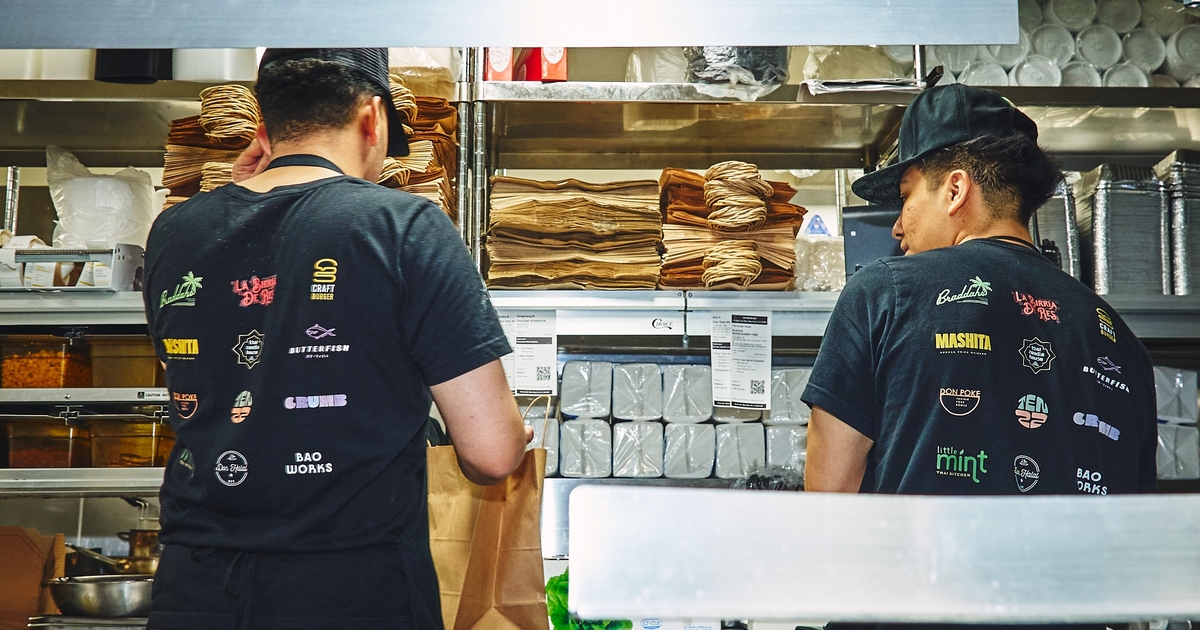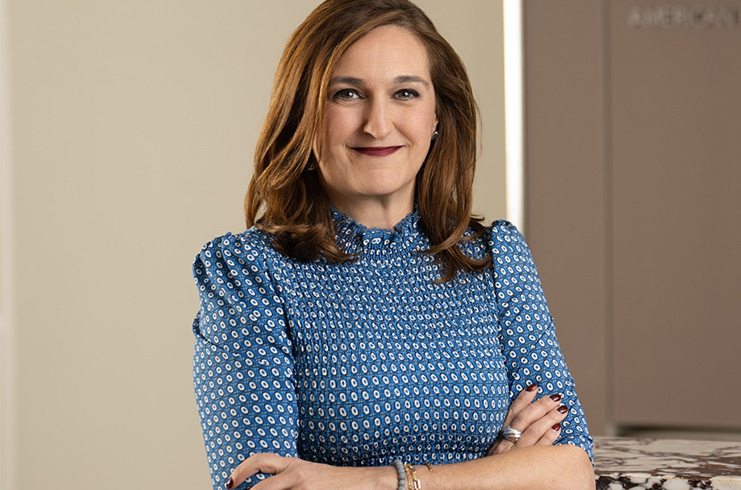
Like many ghost kitchen companies, New York City-based Orbital Kitchens was created in 2020 at the peak of the COVID-19 pandemic’s delivery culture. However, unlike many of its virtual brand competitors, Orbital Kitchens is still standing long after the celebrity-owned, social media-famous ghost kitchen trend has died down.
Orbital Kitchen’s flagship opened in 2020 in Union Square in Manhattan. The venue started out as a food hall before becoming a delivery-only kitchen during the pandemic. Today, the company has three Manhattan-based locations, with three more slated to open by the end of 2025.
Orbital Kitchens operates more than a dozen different brands out of all its locations, with cuisines ranging from trending categories like poke and birria tacos, to classic virtual brand offerings like wings and bowls. Each kitchen is optimized for volume — Orbital Kitchens handles 3,000 orders daily — and divided into stations, like a wok area, a sushi rolling station, and a bowl-building area. The company handles most orders with its own fleet of couriers though still relies on the third-party delivery platforms to get the word out on the app-based marketplaces.
“After [we started out], we kept trying to answer the questions, ‘How do we create high-quality delivery-focused food?’ and ‘How do we brand these different concepts in a way that’s honest and appealing to people?’” Ben Heckler, strategic growth manager of Orbital Kitchens, said. “We’re pretty beholden to these third-party delivery platforms, but a lot of my role has been to find some space, whether that’s through catering, popups, or hotel partnerships to put our concepts in front of different audiences.”
This has been the key for Orbital Kitchens. Whereas many of the pandemic-era virtual brands existed solely on delivery platforms and were otherwise digital ghosts, the next era of the delivery-only companies doesn’t want to exist only in the shadows. Orbital Kitchens’ larger competitors have brick-and-mortar locations customers can visit (like Wonder) or are playing a numbers game by scooping up viral brands with well-known names attached to them (like Virtual Dining Concepts and Everybody Eats).
For Orbital Kitchens, as Heckler said, the key has been to focus on corporate and events catering, as well as introducing communities to their brands like Lucky Mao (Sichuan takeout food) and Bespoke Brownie (artisan brownies with Asian-inspired flavors) through special events.
From hosting brand launch events to sponsoring parties like the Partiful Yacht luxury parties up and down the Hudson River, Heckler called these “an awesome way for us to connect in person with our customers.”
Besides clever local marketing, Orbital Kitchens is also standing out in the second era of the virtual restaurant by slowing down to focus on quality.
“From what I’ve seen, the oversaturation of ghost kitchens and trying to do too much created their own demise,” Heckler said. “We’re really proud of how we merge technology optimization, people, food quality. We will ‘R&D’ [a menu item], send it to a friend to try it and have focus groups. … We know that it’s working and that we’re growing and that our food resonates, at least in the small scale of where it’s at today.”
Contact Joanna at [email protected]






